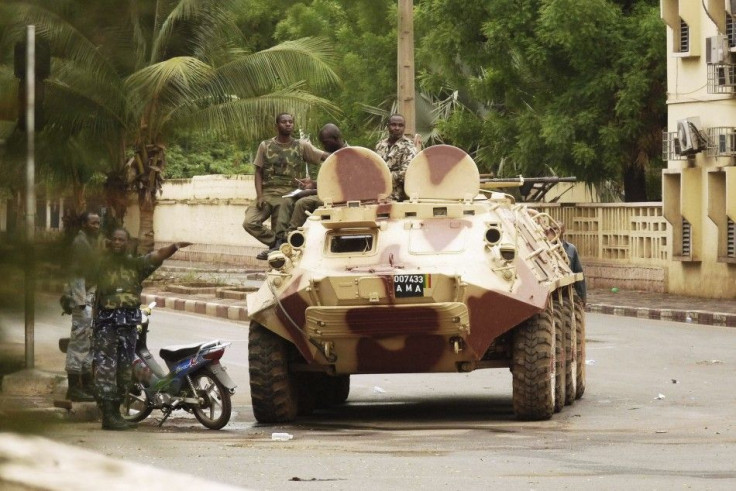Mali Coup: Junta Pursues Loyalists As Gunfire Rings Out In Capital

Mali's military junta is hunting for opponents through the capital Bamako, in the third day of fighting with soldiers loyal to ousted president Amadou Toumani Toure.
The loyalists led an unsuccessful counter-coup Monday. Their base overrun by junta forces Tuesday, causing them to spread out into the general population.
Malian troops have been evacuating buildings to track down any remaining loyalist fighters, including foreign mercenaries, who engaged in the failed counter-coup attempt, Reuters reported, citing an unidentified Malian security source.
The evacuation is meant to help the work of the soldiers who are in the process of sweeping the city in search of mercenaries that have infiltrated the population, the security source said, requesting to remain anonymous.
According to reporting by Al Jazeera, the military has already arrested 240 people allegedly connected to the counter-coup, which sought to restore to power Toure, who was deposed back in March.
Gunfire continues to be exchanged between the junta forces and loyalist fighters, though the military claims the capital has been secured.
The city is under our complete control. There are patrols going on and there may be some warning shots and testing of weapons but that is all,'' junta spokesperson Bakary Mariko told Al Jazeera.
At least 22 people have been killed in the recent clashes, hospital officials told Agence-France Presse Wednesday.
Toure officially stepped down three weeks after the initial coup in March, handing over power to parliament head Dioncounda Traore, who is serving as interim president and has appointed Cheick Modibo Diarra as acting prime minister.
We have witnessed an attempt to destabilize the country these last 48 hours, which resulted in a temporary, not yet complete, victory for our army and our security forces, Diarra said in a statement to the national TV and radio stations, AFP reported. There are still some civilian and armed elements (loyal to the deposed president) on the loose, which justifies the massive presence of our armed and security forces in the city of Bamako.
I would have preferred to wait until all these operations are over before coming to give you an update myself, but as we see, there is a persistence, this perseverance in attempts to destabilize the country, so I am here to make this interim statement, he continued. Stay calm, there is no reason to panic.
The junta is technically no longer in power, but remains a key force in maintaining political stability in Mali.
Junta leader Captain Amadou Sanogo on Saturday ignored demands from west African nations bloc ECOWAS for Mali to hold elections within 12 months, AFP reported. Sanogo also rejected a plan to allow foreign troops into northern Mali, which has been overrun by an insurgency of the Tuareg ethnic group in the chaos of regime change.
Mali's west African neighbors have expressed concern that if the northern Mali is not brought under control, it may become a hotbed for terrorist activity.
The Tuaregs, a nomadic people, have been engaged in a rebellion in the north for decades. Junta leaders cited deposed President Toure's poor handling of the Tuareg rebellion as a major reason for initiating the March coup.
© Copyright IBTimes 2024. All rights reserved.











